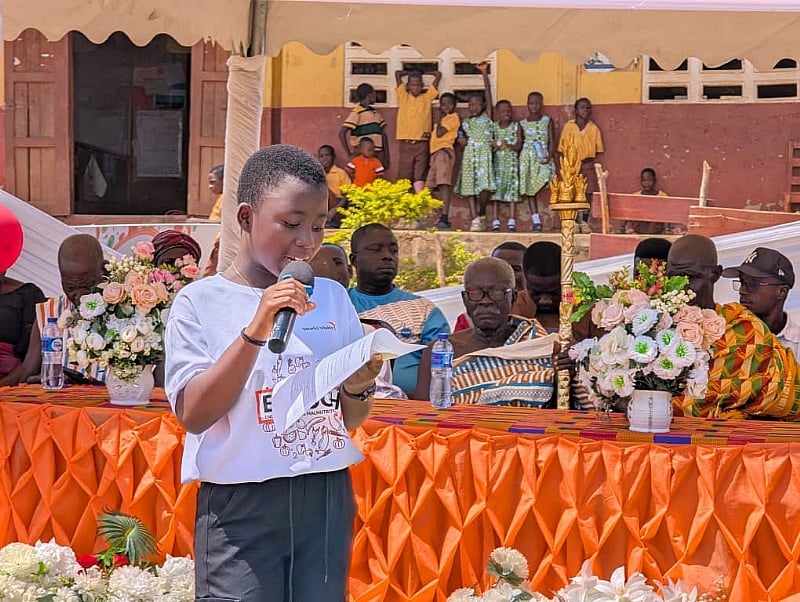The Dire State of Child Nutrition in Fanteakwa North District: A Call for Collective Action
The Fanteakwa North District in Ghana faces a significant challenge in ensuring the well-being of its children, with alarming rates of malnutrition and food poverty casting a long shadow over their future prospects. A stark reality emerges from the available statistics: between 22% and 29% of children in the district grapple with multidimensional poverty, a complex web of deprivation encompassing inadequate access to essential resources such as food, healthcare, and education. Furthermore, stunted growth affects one in every five children, highlighting the chronic nutritional deficiencies that impede their physical and cognitive development. Adding to this grim picture, anemia, a condition characterized by a deficiency of red blood cells or hemoglobin, plagues one in every two children, underscoring the urgent need for intervention to address these interconnected challenges and safeguard the health and well-being of the district’s youngest members.
World Vision Ghana and Partners Launch "Enough Campaign" to Combat Malnutrition
In response to this pressing crisis, World Vision Ghana, in collaboration with key partners, including the Ministries of Agriculture, Education, and Health, has launched the "Enough Campaign," a global initiative designed to tackle malnutrition in all its forms. The campaign aims to eradicate stunting, wasting, micronutrient deficiencies, and overweight, while simultaneously bolstering food security within communities. This comprehensive approach recognizes the multifaceted nature of malnutrition and seeks to address both its immediate and underlying causes. By uniting diverse stakeholders, including government ministries, non-governmental organizations, and community members, the campaign aims to create a synergistic effort that maximizes its impact and brings about lasting change.
Collaboration and Community Engagement: Key Ingredients for Success
The Fanteakwa North District Assembly has lauded World Vision Ghana and its partners for their collaborative efforts in addressing malnutrition and food poverty. The Assembly recognizes the vital role played by these organizations in mobilizing resources, raising awareness, and implementing impactful programs. Agbo Eric, the District Coordinating Director, expressed profound gratitude for the initiative, highlighting the importance of collective action in ensuring that no child goes hungry in Fanteakwa North. He emphasized the district’s agrarian nature and the potential to leverage its arable lands to produce enough food to sustain the entire nation. However, he stressed that achieving this goal requires the unwavering support of all stakeholders, specifically calling upon parents to fulfill their crucial role in providing their children with the necessary nutrition and opportunities to thrive.
Urgency of the "Enough Campaign" and the Need for Sustainable Solutions
Felix Afasi, World Vision Ghana’s Cluster Programs Manager for the Fanteakwa and Afram Plains area, underscored the urgency of the "Enough Campaign," emphasizing the distressing statistics that underscore the extent of malnutrition in the district. He argued that by providing adequate nutrition for children and their families, the campaign can help break the cycle of poverty and empower individuals to pursue their aspirations and reach their full potential. Mr. Afasi stressed the contradiction of widespread hunger in a country with an agrarian economy, urging all stakeholders to participate in a national conversation about addressing malnutrition and food insecurity. He also acknowledged the government’s efforts in expanding the school feeding program and called for its further expansion to reach more children in need.
Sustainable Agriculture and Empowering Communities: A Path to Food Security
The "Enough Campaign" recognizes that long-term solutions to malnutrition require a multi-pronged approach that addresses both immediate needs and underlying causes. One crucial aspect is promoting sustainable agriculture practices that empower communities to produce their own food and build resilience against future food shortages. This involves providing farmers with access to improved agricultural inputs, training on modern farming techniques, and support for diversifying their crops. By enhancing local food production, the campaign aims to create a more sustainable and self-reliant food system that can effectively combat hunger and malnutrition.
Investing in Education and Health: Empowering Future Generations
In addition to bolstering food security, the "Enough Campaign" emphasizes the importance of investing in education and health. By providing children with access to quality education, the campaign aims to equip them with the knowledge and skills they need to break the cycle of poverty and build a brighter future for themselves and their communities. Furthermore, the campaign recognizes that good health is essential for children’s development and well-being. By promoting access to healthcare services, including nutrition counseling and medical treatment for anemia and other health conditions, the campaign aims to ensure that children receive the care they need to grow and thrive. The collaboration between World Vision Ghana, government ministries, and other partners represents a crucial step towards addressing the complex challenges of malnutrition and food poverty in Fanteakwa North District and building a more equitable and prosperous future for all.


